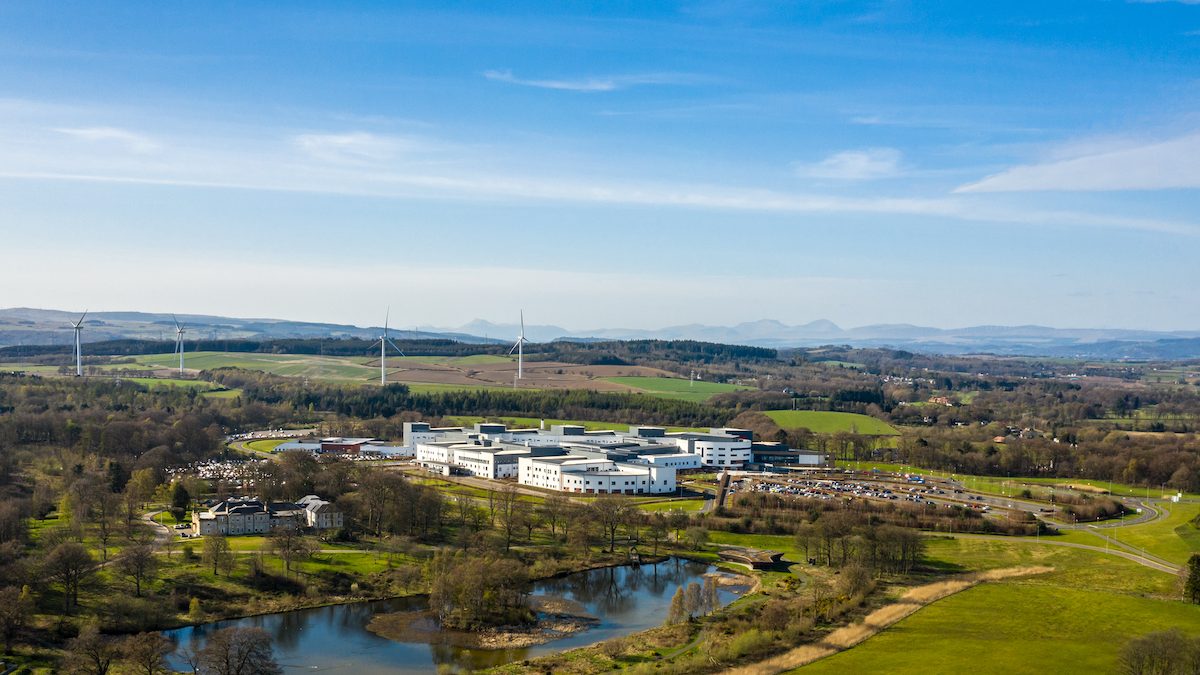A Scottish health board has highlighted the 17 digital initiatives that have helped it respond to the Covid-19 pandemic.
NHS Forth Valley identified the tech solutions in a new board paper outlining its ‘system wide’ one-year remobilisation plan following a request from government.
As part of the response, the plan seeks to ‘retain and build on the many positive transformative changes inspired by staff who have come together to work differently during this pandemic’.
The plan overall is focused on the safe resumption of many non-urgent health services that were curtailed as a result of the Covid-19 crisis and considers its long-term consequences.
However it describes digital and eHealth measures as a “major enabler” over the period of the pandemic, which have included the accelerated roll out of the video consultation platform ‘Near Me’ across all main care settings and GP practices.
Other initiatives include a full Microsoft Teams roll out to all staff in NHS Forth Valley to support meetings and communications; increased Wi-Fi access for key staff at Forth Valley Royal Hospital’; the doubling of remote access arrangements of staff; the procurement of additional laptops and mobile devices to support more agile and home working’; strengthening of cybersecurity by rolling out Advanced Threat Protection (ATP) software; the rollout of iPads to support critical care and community hospital visiting and the implementation of track and trace software and digital platforms locally.
The board has also committed to producing an ‘innovation plan’ that addresses some of the ongoing challenges faced by the health system, such as inequalities exacerbated by Covid.
Such innovations include increasing use of home and mobile health monitoring for hypertension, achieving the goal of adding 2,000 users to the system, and also exploring remote healthcare pathways technology to support Covid assessment, asthma and irritable bowel syndrome (IBS).
Cathie Cowan, NHS Forth Valley’s chief executive, said the board’s ambitions are to support service recovery, innovation and improvement over the next three years, which includes the ‘rapid delivery of essential actions and IT solutions’ and ’embeds innovations and digital approaches into our everyday practice and business’.
She said the plans, approved at a meeting of the NHS Board on Tuesday, form part of a wider vision to reduce waiting times and deliver better outcomes for patients. Collectively, they will lead to significant investment in community services, stroke services, outpatient clinics and theatre sessions to help tackle the backlog of non-urgent operations and appointments which has built up during the Covid-19 pandemic.
She said: “These exciting and ambitious plans will not only help us recover from the Covid-19 pandemic, but will also support the development of more sustainable services.
“This will ensure we are able to keep pace with future demand and improve health outcomes by ensuring local patients can access support and treatment at an early stage. Investing in community-based services like Hospital at Home will also help prevent hospital admissions and reduce pressure on local GP and Emergency Department services.”
Dr Sara Else, associate medical director for scheduled Care, NHS Forth Valley, added: “Even before the pandemic, like many areas across Scotland, we were experiencing capacity issues in a number of specialities including orthopaedics, urology and gastroenterology. This, coupled with the impact of the pandemic and the ongoing rise in demand, would have led to increasingly longer waits for patients if we did not take action to address it.”
“We therefore looked at what we needed to do, not just to tackle the backlog, but to create more sustainable services for the future by increasing capacity, developing new and more innovative ways of delivering services, upskilling existing staff and recruiting a number of additional staff.”
Full details of the plan can be found here.




